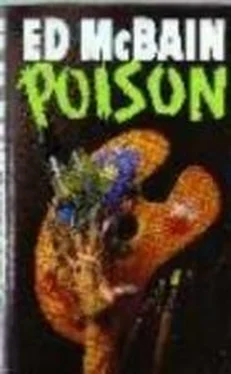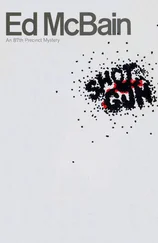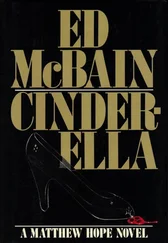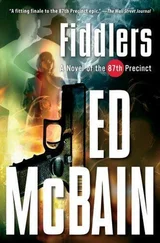Ed McBain - Poison
Здесь есть возможность читать онлайн «Ed McBain - Poison» весь текст электронной книги совершенно бесплатно (целиком полную версию без сокращений). В некоторых случаях можно слушать аудио, скачать через торрент в формате fb2 и присутствует краткое содержание. Жанр: Полицейский детектив, на английском языке. Описание произведения, (предисловие) а так же отзывы посетителей доступны на портале библиотеки ЛибКат.
- Название:Poison
- Автор:
- Жанр:
- Год:неизвестен
- ISBN:нет данных
- Рейтинг книги:4 / 5. Голосов: 2
-
Избранное:Добавить в избранное
- Отзывы:
-
Ваша оценка:
- 80
- 1
- 2
- 3
- 4
- 5
Poison: краткое содержание, описание и аннотация
Предлагаем к чтению аннотацию, описание, краткое содержание или предисловие (зависит от того, что написал сам автор книги «Poison»). Если вы не нашли необходимую информацию о книге — напишите в комментариях, мы постараемся отыскать её.
Poison — читать онлайн бесплатно полную книгу (весь текст) целиком
Ниже представлен текст книги, разбитый по страницам. Система сохранения места последней прочитанной страницы, позволяет с удобством читать онлайн бесплатно книгу «Poison», без необходимости каждый раз заново искать на чём Вы остановились. Поставьте закладку, и сможете в любой момент перейти на страницу, на которой закончили чтение.
Интервал:
Закладка:
"I'd appreciate having it," Willis said.
"This wasn't any suicide, was it?" Riley said. "This was murder, plain and simple."
Willis said nothing.
He was thinking it wasn't so plain and it wasn't so simple.
Vice President in Charge of Marketing for Eastec Systems.
You visualized a giant corporation on the order of IBM or General Motors. You visualized an executive with area maps all over the walls of his enormous office, different colored pins marking the hordes of salesmen in each territory.
Sure.
In this city, where a garbage man was a Sanitation Engineer and a prostitute was a Sex Counselor, Jerry McKennon was Vice President in Charge of Marketing for what appeared to be a two-bit operation.
Avenue J was in a part of the city the cops used to call Campbell's City, in reference to the alphabet soup marketed by that company, but which over the years had come to be known as the Soup Kitchen. Tucked into a downtown poverty pocket that rivaled any in Calcutta, the lettered avenues ran east-west for a goodly stretch of Isola, and north-south from A through L where the Soup Kitchen ended at the River Dix. Across the river you could see the smoke stacks of the factories in Calm's Point.
At the turn of the century, the dingy tenements in this area had been inhabited by immigrants flocking to America to mine the promised gold in the streets. They found instead the manure dropped by horses pulling ice wagons, milk wagons, lumber wagons, and streetcars. Upward mobility and a strong will to survive took them farther uptown into ghettos defined by their countries of origin, and finally out of the inner city itself into the relatively suburban areas of Riverhead, Calm's Point, Majesta, and Bethtown.
In the Forties and Fifties, a new wave of immigrants—who were nonetheless bona fide citizens of the United States—moved into the tenements, and the sound of Spanish replaced that of Yiddish, Italian, Polish, German and Russian. The Puerto Ricans who came seeking the same gold the earlier settlers had sought found not horseshit but instead a withering prejudice that equated anyone Spanish-speaking with criminal activity. There had been prejudice in this city before. Prejudice against the first Irish who came here to escape the potato famine, prejudice against the Italians who were escaping the blight on their precious grape crop, prejudice against Jews escaping religious persecution, prejudice—always and for any number of rationalizing reasons—against the blacks who inhabited the Diamondback slum uptown. But the prejudice now was deeper, perhaps because the Puerto Ricans steadfastly clung to their old traditions and their native tongue.
It was therefore a matter of high irony when the Puerto Ricans themselves turned so vehemently against the flower children who moved into the tenements—many of them abandoned by then—in the mid-Sixties and early Seventies. It was not uncommon back then for pot-smoking kids to look up in astonishment when a band of Soup Kitchen natives (by now they were natives, though scarcely thought of as such by other Americans) burst into an apartment to rob—ah, yes, the old self-fulfilling prophecy—and rape and occasionally to murder. "Peace," the flower children said, "Love," the flower children said while their skulls were being opened. The hippies eventually vanished from the scene. They left behind them, however, a legacy of drug use, and nowadays the alphabet avenues were a happy hunting ground for pushers and junkies of every stripe and persuasion.
Eastec Systems had its offices in a dilapidated building on the southern side of Avenue J. A nail-filing, gum-chewing receptionist looked at Carella's shield and ID card in something close to awe, pressed a button on the base of her phone, and then told him that Mr. Gregorio would see him at once. Carella walked down a corridor to a door with a black plastic name plate on it: RALPH GREGORIO, PRESIDENT. He knocked. A man's voice said, "Come in." He opened the door. Green metal furniture and filing cabinets. Dusty Venetian blinds on the windows fronting the street. Behind the desk, a chubby man in his early forties, shirt-sleeves rolled up, cheeks flushed, wide grin on his face, hand extended.
"Hey, paisan ," he said, "what can I do for you?"
Carella did not enjoy being called paisan. Too many Italian-American mobsters had called him paisan, usually in conjunction with a plea for a favor premised on a shared ethnic background.
He took the preferred hand.
"Mr. Gregorio," he said, "Detective Carella, Eighty-seventh Squad."
"Sit down, sit down," Gregorio said. "This is about Jerry, right?"
"Yes."
"Terrible shame, terrible," Gregorio said. "I saw it on television, they gave him, what, thirty seconds? Terrible shame. He killed himself, huh?"
"When's the last time you saw him?" Carella asked, ignoring the question.
"Friday. End of the day Friday."
"Did he seem despondent at that time?"
"Despondent? No. What despondent? Jerry? No. I got to tell you, this comes as a complete surprise, him taking his own life."
"He began working here shortly before Christmas, is that right?"
"That's right, who told you that? Well, I guess you have ways of knowing, eh, paisan ?" Gregorio said, and winked.
"Did he ever seem depressed or despondent? During the past three months?"
"No. Always a smile on his face. He used to go around here singing, would you believe it. We're the ones supposed to be the singers, am I right, paisan? Jerry was, what, Irish, English, who the hell knows? Singing all the time. The Pavarotti of the security business. We sell and install security systems, you know. Make it tougher for the bad guys. Help you guys out a little." He winked again.
"What time did he leave here on Friday?"
"Five-thirty. He was a hard worker, Jerry. Sometimes didn't get out of here till six, seven o'clock. We're a new company, you know, but we got a brilliant future. Jerry realized that. He was giving it all he had. What a shame, huh?"
"Did he mention anything about his weekend plans?"
"No."
"Didn't say where he was going, what he planned to do?"
"No."
"Did he ever mention a woman named Marilyn Hollis?"
"No."
"Mr. Gregorio…"
"Hey, paisan ," Gregorio said chidingly, and spread his arms and his hands wide. "What's with the formality? Make it Ralph, huh?"
"Thank you," Carella said, and cleared his throat. "Uh… Ralph… do you think I could have a look at Mr. McKennon's office?"
"Sure, it's right down the hall. What are you looking for?"
"Anything that might help us," Carella said.
He was looking for an appointment calendar, and he found it at once, on McKennon's desk and open to the month of March.
"Mind if I take this with me?" Carella said.
"It's no good to Jerry no more," Gregorio said.
"I'll make out a receipt…"
"Come on, paisan, you and me need receipts ?"
"Well, it's required," Carella said, and began writing.
The second name on Marilyn's list was Chip Endicott. The name on his door was Charles Ingersol Endicott, Jr.
He was the one who hated her answering machine.
He was also an attorney with the firm of Hackett, Rawlings, Pearson, Endicott, Lipstein and Marsh. Willis wondered how the Jew had snuck in.
Endicott was in his late forties, Willis guessed, though it was really somewhat difficult to tell. A man in tanned good health, some five feet ten inches tall, no age wrinkles on his handsome, narrow face, dark brown eyes intelligent and alert, the only clue to his age was his white hair—but that may have been premature. He shook hands firmly with Willis, said, "This has to do with Marilyn, does it?" and then gestured toward a chair opposite his desk.
Читать дальшеИнтервал:
Закладка:
Похожие книги на «Poison»
Представляем Вашему вниманию похожие книги на «Poison» списком для выбора. Мы отобрали схожую по названию и смыслу литературу в надежде предоставить читателям больше вариантов отыскать новые, интересные, ещё непрочитанные произведения.
Обсуждение, отзывы о книге «Poison» и просто собственные мнения читателей. Оставьте ваши комментарии, напишите, что Вы думаете о произведении, его смысле или главных героях. Укажите что конкретно понравилось, а что нет, и почему Вы так считаете.












